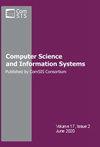Solution for TSP/mTSP with an improved parallel clustering and elitist ACO
IF 1.2
4区 计算机科学
Q4 COMPUTER SCIENCE, INFORMATION SYSTEMS
引用次数: 2
Abstract
Many problems that were considered complex and unsolvable have started to solve and new technologies have emerged through to the development of GPU technology. Solutions have established for NP-Complete and NP-Hard problems with the acceleration of studies in the field of artificial intelligence, which are very interesting for both mathematicians and computer scientists. The most striking one among such problems is the Traveling Salesman Problem in recent years. This problem has solved by artificial intelligence?s metaheuristic algorithms such as Genetic algorithm and Ant Colony optimization. However, researchers are always looking for a better solution. In this study, it is aimed to design a low-cost and optimized algorithm for Traveling Salesman Problem by using GPU parallelization, Machine Learning, and Artificial Intelligence approaches. In this manner, the proposed algorithm consists of three stages; Cluster the points in the given dataset with K-means clustering, find the shortest path with Ant Colony in each of the clusters, and connect each cluster at the closest point to the other. These three stages were carried out by parallel programming. The most obvious difference of the study from those found in the literature is that it performs all calculations on the GPU by using Elitist Ant Colony Optimization. For the experimental results, examinations were carried out on a wide variety of datasets in TSPLIB and it was seen that the proposed parallel KMeans-Elitist Ant Colony approach increased the performance by 30% compared to its counterparts.基于改进并行聚类和精英蚁群算法的TSP/mTSP求解方法
许多被认为是复杂和无法解决的问题已经开始解决,通过GPU技术的发展,新技术已经出现。随着人工智能领域研究的加速,已经建立了np完全和np困难问题的解决方案,这对数学家和计算机科学家来说都是非常有趣的。在这些问题中,最引人注目的是近年来出现的旅行商问题。这个问题已经被人工智能解决了?遗传算法、蚁群优化等元启发式算法。然而,研究人员一直在寻找更好的解决方案。本研究旨在利用GPU并行化、机器学习和人工智能方法,设计一种低成本且优化的旅行商问题算法。这样,本文提出的算法包括三个阶段;用K-means聚类对给定数据集中的点进行聚类,在每个聚类中用蚁群找到最短路径,并在最接近的点将每个聚类连接起来。这三个阶段通过并行编程实现。该研究与文献中发现的最明显的区别是,它通过使用精英蚁群优化在GPU上执行所有计算。对于实验结果,在TSPLIB中对各种数据集进行了测试,发现所提出的并行KMeans-Elitist蚁群方法比同类方法的性能提高了30%。
本文章由计算机程序翻译,如有差异,请以英文原文为准。
求助全文
约1分钟内获得全文
求助全文
来源期刊

Computer Science and Information Systems
COMPUTER SCIENCE, INFORMATION SYSTEMS-COMPUTER SCIENCE, SOFTWARE ENGINEERING
CiteScore
2.30
自引率
21.40%
发文量
76
审稿时长
7.5 months
期刊介绍:
About the journal
Home page
Contact information
Aims and scope
Indexing information
Editorial policies
ComSIS consortium
Journal boards
Managing board
For authors
Information for contributors
Paper submission
Article submission through OJS
Copyright transfer form
Download section
For readers
Forthcoming articles
Current issue
Archive
Subscription
For reviewers
View and review submissions
News
Journal''s Facebook page
Call for special issue
New issue notification
Aims and scope
Computer Science and Information Systems (ComSIS) is an international refereed journal, published in Serbia. The objective of ComSIS is to communicate important research and development results in the areas of computer science, software engineering, and information systems.
 求助内容:
求助内容: 应助结果提醒方式:
应助结果提醒方式:


